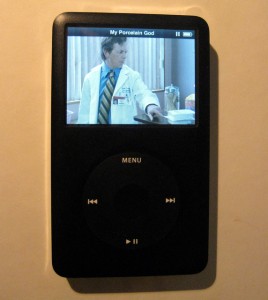Amy Goodman recently interviewed David Kessler, who used to be Commissioner of the FDA under Bush I and Bill Clinton. He has really turned up the heat on the unhealthy food industry, and it is a huge industry. It's repeat clients also frequent hospitals in droves, as reported by DemocracyNow:
[A] new report from the Centers for Disease Control and Prevention warns that the direct medical costs of obesity total about $147 billion a year. That amounts to nine percent of all US medical costs. It’s also over $50 billion more than the annual spending on cancer.
The problem is that we have these innate and insatiable cravings for salt and sugar and fat.
Fat and sugar, fat and salt, fat, sugar, and salt stimulate us to eat more and more. Does the food industry understand the inputs? Absolutely. They understand that fat, sugar and salt stimulate us, and they understand the outputs. They understand we keep on coming back for more and more, as Kessler explains:
Have they understood the neuroscience? Have they understood how fat and sugar work? I don’t think so. But we now have that science. But what’s important is the fact that they have figured out—they’ve learned it experientially—what works, and they construct food to stimulate us to eat more . . .
What has the food industry done? They’ve taken fat, sugar and salt, they’ve put it on every corner. They’ve made it available 24/7. They’ve made it socially acceptable to eat at any time. They’ve added the emotional gloss of advertising. Look at an ad; you’ll love it, you’ll want it. They’ve made food into entertainment. We’re living, in fact, in a food carnival.
But how much fat, sugar and salt can you possibly pump into food? More than you can imagine. Kessler explains the formula:
So, take an appetizer in a modern American restaurant. Take buffalo wings. What are they? You take the fatty part of the chicken, fried usually in the manufacturing plant first. That loads about 30, 40 percent fat. Fry it again in the kitchen of the restaurant. That loads more fat. That red spicy sauce? What is it? Fat and sugar. That white creamy sauce on the side? Fat and salt. What are we eating? Fat on fat on fat on fat on sugar on fat and salt.
But aren't the obese people the real problem? Why blame the terribly unhealthy food industry (Did you like this framing of the question)? Yes, people need to get disciplined about the way they eat. No doubt. But when 2/3 of American adults are overweight, it's time to assume that the artery-clogging food manufacturers of American are immorally creating an environment ubiquitously filled with toxic supersized portions. In short, I fully support new Congressional legislation would provide up to $10 billion a year for a prevention and public health investment fund that would include a focus on curbing obesity.
See this related post on
the effect of growing portion sizes.

